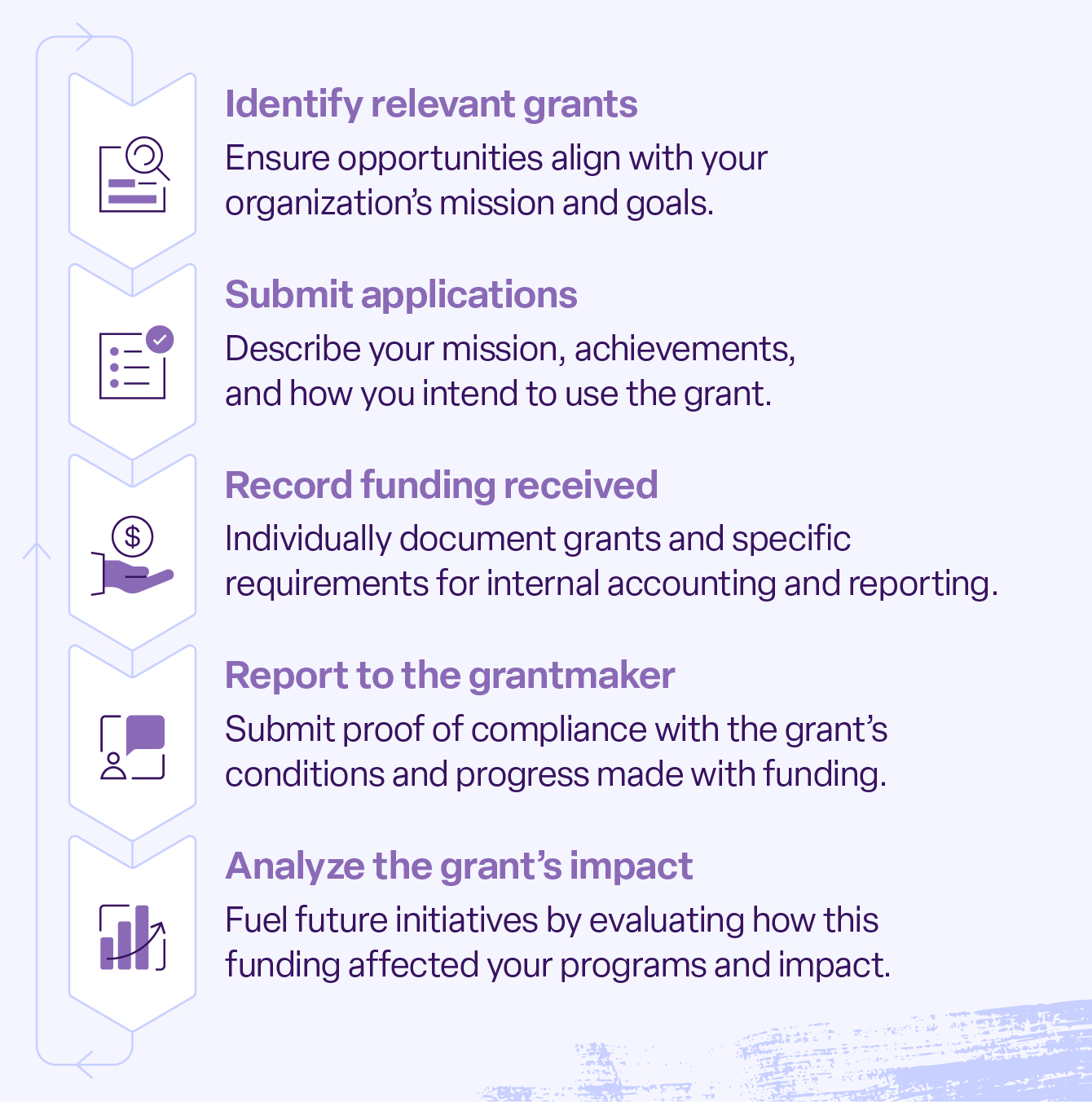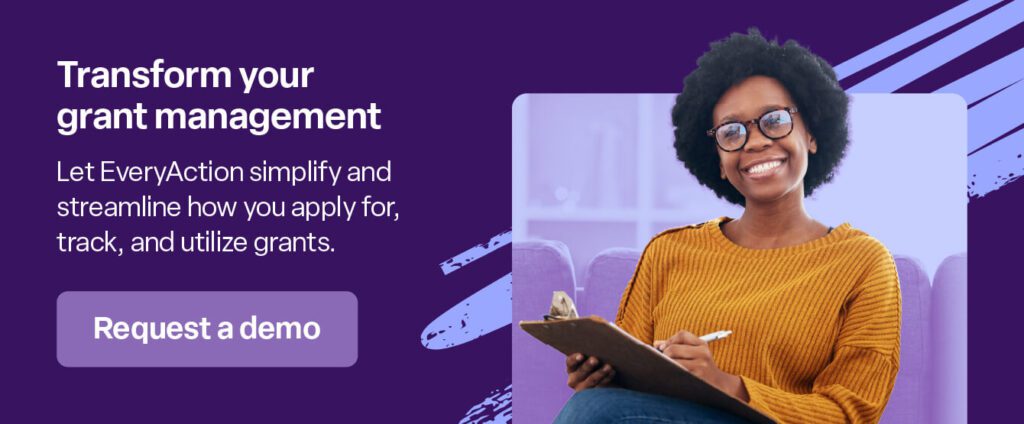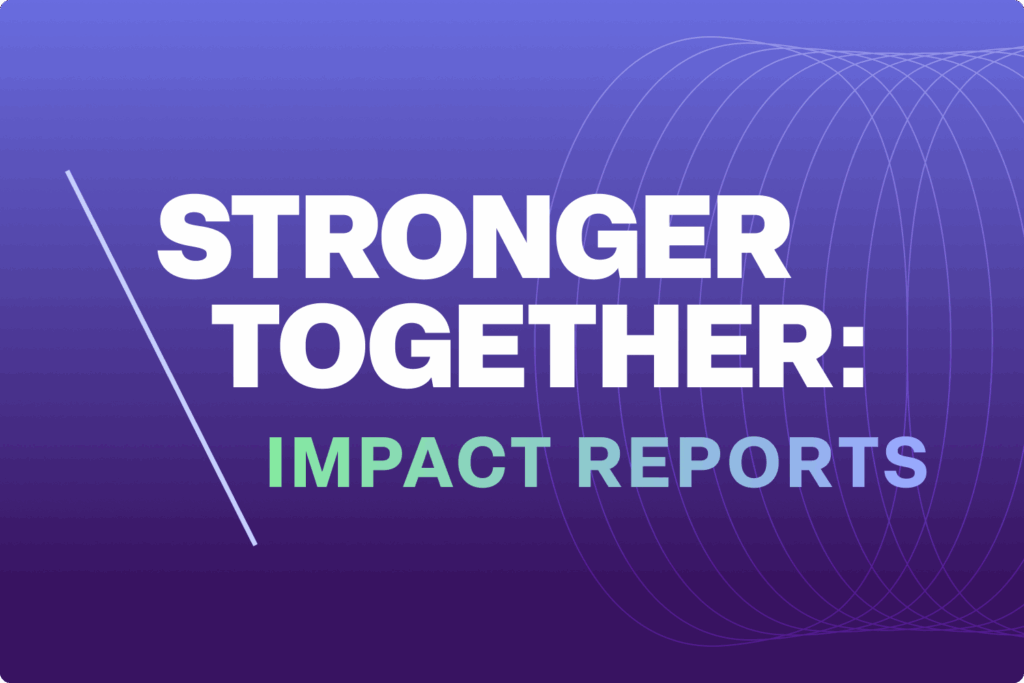13+ grants for mental health nonprofits and how to apply for funding

Funding through grants is essential for many nonprofits. With the current federal funding landscape, remember that some of the grants covered below may not be available at the time of reading.
Grants can be a lifeline for mental health nonprofits, offering support for operations, programs, and research. Alongside major gifts from individual donors, grants for mental health nonprofits help fund everything from peer support programs to crisis hotlines to training and reporting systems to keep the organization running.
Keeping these nonprofits running is crucial: Over 5 million Americans are unable to access mental health care due to a lack of insurance or funds, and 25% of US adults with mental illness reported an unmet need for treatment. Nonprofits focusing on mental health can be a vital resource, but only if they’re well-funded.
There are several types of grants from various funding sources available, which we’ll cover in more detail below, as well as how to determine your organization’s eligibility and how to apply.
| Type of grant | Meaning | Example use case |
| Operating grants | Fund day-to-day operations at the organization’s discretion | Goes toward a counseling center’s rent or administrative staff salaries |
| Program grants | Support activities related to a specific initiative, project, or program | Funds a suicide prevention hotline or a community-based peer support group |
| Capital grants | Allow organizations to invest in physical infrastructure or assets for long-term improvements | Allows a mental health clinic to build a new office or purchase new equipment for virtual counseling sessions |
| Research grants | Sponsor ongoing research to further mental health understanding and education | Funds a study to assess the effectiveness of a new therapy for anxiety in adolescents |
| Emergency grants | Offer financial aid to organizations affected by unexpected expenses | Covers emergency repairs after a natural disaster or urgent operational needs due to a sudden funding gap |
Below, we’ve pulled together a list of some federal, state, private, and specialized grants to be aware of.
It’s important to note that, given the current federal funding landscape, the availability of these grants is subject to change. Before deciding to apply for a grant, verify it is still listed on the funding entity’s website.
Federal grants
Federal grants are offered by the US government’s Department of Health and Human Services (HHS) agencies, like SAMHSA, NIH/NIMH, and HRSA. These grants often require organizations to comply with federal reporting requirements and can have strict rules for eligibility and timelines.
Substance Abuse and Mental Health Services Administration (SAMHSA)
Eligibility: United States organizations focused on substance abuse and mental health
SAMHSA funds grants to expand prevention, treatment, support, and services for organizations providing substance abuse and mental health care. Grant opportunities include block grants, Notice of Funding Opportunity (NOFO) grants, and competitive grants.
Community Mental Health Services Block Grant (MHBG)
Eligibility: United States organizations focused on adults with mental illness impacting daily life or children with severe emotional disturbances
The Community Mental Health Services Block Grant offers funds to organizations throughout the United States, including territories. Its objective is to enable organizations to successfully provide mental health services. Grantees may use these funds for ongoing programs or to start new ones. Applicants must submit their information by September 1 of each year, and the grant runs on a one-year term.
Substance Use Prevention, Treatment, and Recovery Services Block Grant (SUPTRS BG or SUBG)
Eligibility: United States organizations focused on prevention, early intervention for HIV/AIDS, tuberculosis, intravenous drug users, and pregnant and parenting women
The Substance Use Prevention, Treatment, and Recovery Services Block Grant focuses on substance use prevention and treatment. Grantees must apply annually by September 1 and have a designated division to administer the grant.
They must also be flexible in their distribution of the funds and have sub-receipients (like community organizations) through which they can deliver substance use treatment, support, and prevention services. Grantees must spend at least 20% of their allotment on primary prevention strategies, including education, information sharing, substance use alternatives, and more.
National Institute of Mental Health (NIMH) grants
Eligibility: Universities, nonprofit organizations, and research institutes that may receive federal research funding and meet relevant scientific or educational qualifications
NIMH, part of the broader National Institutes of Health (NIH), funds research related to mental health; it’s the world’s largest funder of such research. It issues several types of grants, many of which are competitive or require institutional sponsorship. Application due dates vary for each type of grant.
- Research grants: For exploratory and developmental research, clinical research, and academic research
- Education and training grants: For training and development of researchers in relevant focus areas
- Program grants: For research or projects that do not involve clinical trials
Health Resources and Services Administration (HRSA) grants
Eligibility: Public, private, and nonprofit organizations
Health Resources and Services Administration grants fund educational and community groups seeking to solve relevant needs in their area. Many of these grants focus on expanding access to mental health services through outreach or education.
Examples include:
- Behavioral Health Workforce Education and Training Program for Professionals: Provides training and development of behavioral health providers, with the goal of increasing the number and diversity of professionals
- Behavioral Health Service Expansion grants: Support expanding access to mental health care in underserved communities
- Grants for regional outreach programs: Fund programs that engage the local community, often focusing on unique local issues
Each has its own application deadline and requirements.
State and local government grants
Eligibility: Nonprofits based in the local region
State and local government grants differ from federal grants in that they are more locally focused, operate on a smaller scale, and have different reporting requirements. While there are differences in funding for mental health services by state, many of these behavioral health grants further these services through school-based care, workforce development, and crisis or treatment services.
To find state or local mental health grants for nonprofits, search state behavioral health agency websites, grant portals, or state associations.
Private foundation grants
Private grants may have fewer requirements than government grants for mental health, and may fund anything from research to innovation to operations. These grants can be a great addition to a comprehensive fundraising strategy that includes government grants and online fundraising.
The APA Foundation’s MOORE Equity Program
Eligibility: Organizations focused on young people of color
The MOORE Equity in Mental Health Community Grants Program provides funding for organizations that provide innovative awareness programs or offer services to improve mental health for young people of color. Receiving organizations are selected based on initiatives like:
- Programming addressing substance abuse and mental health inequities
- Promotion of awareness around these inequities
- Furthering access to substance abuse and mental health support
- Improving the quality of culturally relevant and appropriate services
This grant awards $10,000 for a two-year period. The application cycle is open from August 1 to September 30 each year.
Robert Wood Johnson Foundation
Eligibility: Organizations advancing health equity
The Robert Wood Johnson Foundation awards funds in accordance with four key areas focused on health equity. These include:
- Building health systems around the goal of improved health for everyone
- Furthering research and programs that increase health among children and families
- Developing initiatives supporting healthy communities
- Supporting leaders as they address and solve the nation’s health challenges
The foundation typically sends out a call for proposals explaining high-priority challenges, goals, eligibility, and deadlines (which vary by program). It also offers challenges, competitions, and open calls for innovative ideas.
Elevance Health Foundation
Eligibility: Organizations focused on physical, behavioral, and social needs in under-resourced communities
The Elevance Health Foundation currently focuses its grantmaking work on programs and organizations that can demonstrate impact in these areas:
- Maternal and infant health
- Food as medicine
- Behavioral health
- Disaster relief and community resiliency
The deadlines for these grants vary. Typically, grants last between one and three years, and funding levels depend on factors such as financial need and specific plans.
Scattergood Foundation
Eligibility: 501(c)(3) organizations impacting behavioral health at societal, organizational, and individual levels
The Scattergood Foundation funds nonprofit projects and programs that serve to improve the behavioral health space. Its mental health funding priorities include:
- Building a more compassionate and inclusive society that centers behavioral health
- Challenging inequalities that disadvantage marginalized people and communities
- Sharing power and bringing together agents of change
- Elevating the voices of those who are often unheard
- Accelerating improvement through community skill-building
The foundation prioritizes organizations that serve or are led by individuals of color, with an emphasis on programs serving the greater Philadelphia area or nationwide. Programs limited to other regions within the US may still be considered but are generally less prioritized.
Mental Health America (MHA)
Eligibility: Community-driven mental health initiatives
Mental Health America is a national organization that strives to promote mental health, well-being, and the prevention of mental health conditions. As a nonprofit organization, it receives grants (including a $3.5 million grant from Elevance Health in 2022) but also offers small grants or partnership funding opportunities.
Through initiatives like the Equity Impact Zones program, it has provided multi-year funds to community-led initiatives to improve access to mental health support.
The Centene Foundation
Eligibility: Tax-exempt charities focusing on health-related causes
The Centene Foundation awards long-term grants and partnerships to organizations focused on:
- Healthcare
- Social services
- Education
The fall application cycle runs from September 1 to November 30, and the spring cycle runs from March 1 to May 31. Organizations that receive grants must work with a program manager to complete an annual outcomes report, which details how funds were used, the impact achieved, and any key metrics or stories demonstrating program success.
Specialized mental health grants
These grants and competitions focus on mental health innovation, community-driven models, or recovery. They’re considered “specialized” because they often target specific populations or approaches, are infrequently offered, or may provide different funding (more flexible or larger amounts) than typical grants.
National Alliance on Mental Illness (NAMI)
Eligibility: NAMI affiliates
The National Alliance on Mental Illness provides funding to its 650+ local chapters and affiliates, which then enable these groups to offer programs like:
- Education for individuals and families experiencing mental illness
- Support and peer-to-peer programs
- Advocacy tools and resources
- Awareness events
NAMI also advocates for increased government funding, such as greater support for the Community Mental Health Services Block Grant.
To support their mission and generate funding of their own, NAMI uses Bonterra DonorDrive. Flexible, configurable peer-to-peer fundraising software helps activate their supporters with automated workflows and engagement tools designed to empower donors and get results.
The MacArthur Foundation
Eligibility: Organizations addressing societal challenges
The MacArthur Foundation funds projects spanning policy, research, and more, as well as competitions like 100&Change, which awards a $100 million grant to those attempting to solve critical problems. While not solely focused on behavioral health, the foundation aims to address social challenges.
Because it offers several different grants, ranging from criminal justice to societal impacts of technology, deadlines and application requirements vary. The foundation prefers not to receive unsolicited proposals and instead asks that interested parties review the guidelines and apply accordingly.

Tips for finding grants for mental health services
Finding grants for mental health nonprofits requires some research, but there are several ways to seek out these lucrative funding sources.
- Search the funder sites: Visit the grantmaker sites to see what’s available. You can also sign up for funding alerts to stay in the know.
- Monitor government sites: Regularly check Grants.gov and the websites of agencies like SAMHSA, HRSA, and NIMH to stay aware of deadlines and application requirements for various grants for mental health services.
- Partner with other organizations: Partnering with state organizations allows you to access subawards. Cultivating relationships with local health departments and community foundations can also open you up to additional grant opportunities.
- Use prospect research tools: These can help you discover and gather information about relevant grantmakers.
How to apply for behavioral health grants
The application process for most grants for mental health nonprofits takes time and effort, but we’ve broken down the steps to get you started.
- Prepare essential documents: Look at the particular grantmaker’s requirements and gather the necessary documents. These may include a 501(c)(3) determination, audited financial details, budget information, and performance data.
- Identify funding opportunities: Search agency websites, state portals, and foundation pages to discover mental health funding opportunities that may be a match for your organization.
- Write your grant proposals: Your grant writing process should follow the funder’s priorities and include a summary, a statement of needs, a detailed project description, an evaluation plan, a budget, and organizational details.
- Submit and follow-up: Submit your grant application on the relevant portal before the deadline. Make sure it’s received (look for a confirmation) and prepare for future performance monitoring or post-award reporting.
Pulling all of this information together on a tight timeline, especially with the capacity constraints many organizations have, can be tricky. And when you add in complicated federal application requirements, it’s even more of a challenge. It can help to invest in fundraising tools and software that centralize data and reporting.
Amplify your fundraising efforts with Bonterra
Before you’re able to receive grants for mental health nonprofits, you first have to seek them out, prepare your information, and formally apply. There are a lot of moving parts, including detailed forms and strict deadlines.
Nonprofit software can be a big help in this area, and Bonterra EveryAction is a great option. As a powerful CRM for fundraising and advocacy, EveryAction helps you track and manage relationships and centralize your data in a single platform.
With all your data — including fundraising, program metrics, and volunteer details — in one place, it’s easy to pull reports to include in your grant proposals. And because grants often help fund organizations in conjunction with major gifts and other forms of fundraising, you can track everything for a comprehensive funding strategy.
Try EveryAction today to see how it can transform your grant application process.

FAQ
How can nonprofits apply for SAMHSA mental health grants?
Monitor SAMHSA’s grants page and NOFO forecast dashboard. When you find relevant opportunities, prepare the required documents and submit them per the instructions.
What are the eligibility criteria for APAF community grants?
APAF community grants typically require an organization to be a US-based nonprofit that has demonstrated work to address mental health inequities for youth of color. They must also have a scalable plan for how they will use the grant. Review the grants page on the APAF website for more information.
Work with Bonterra



